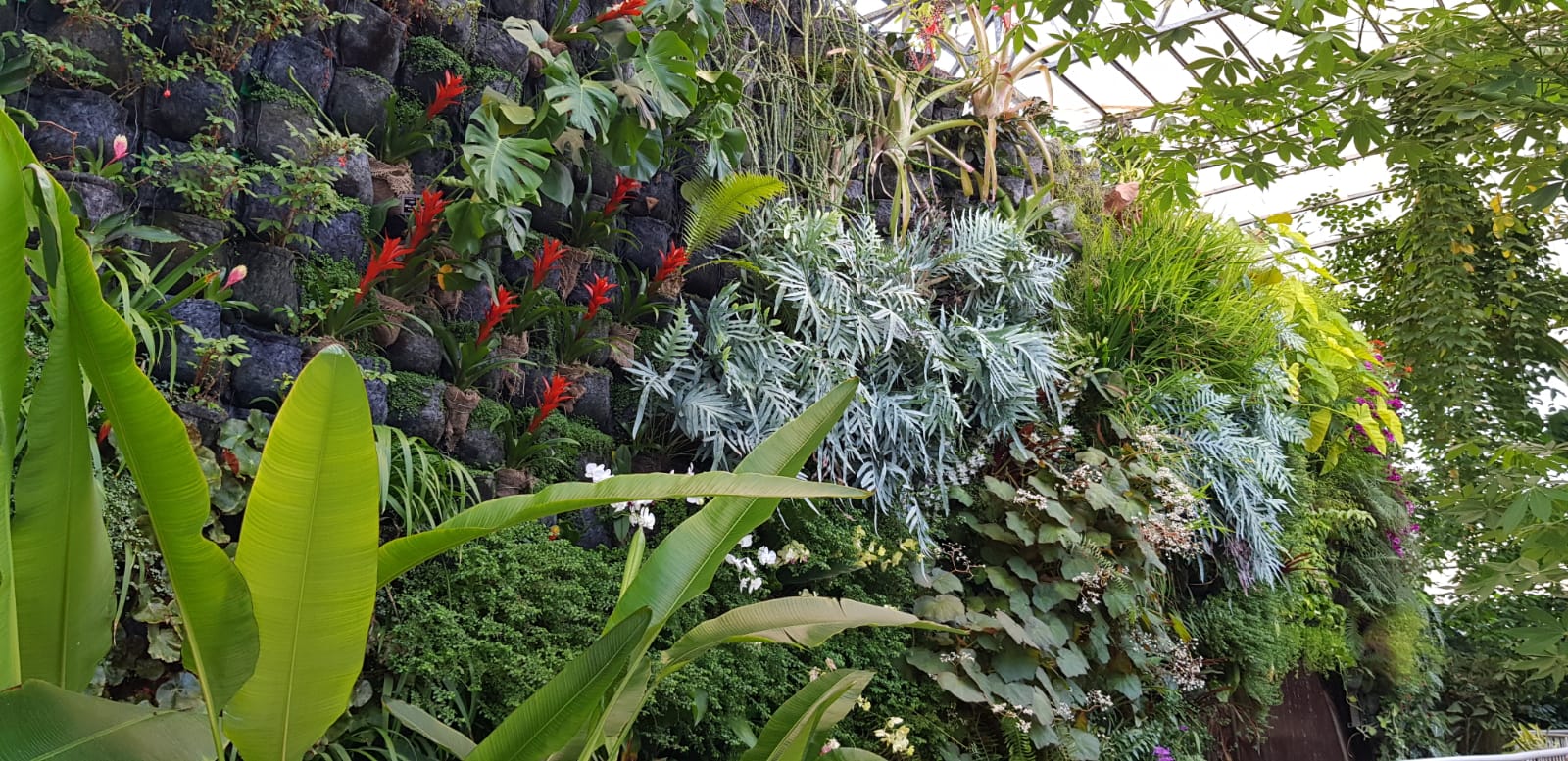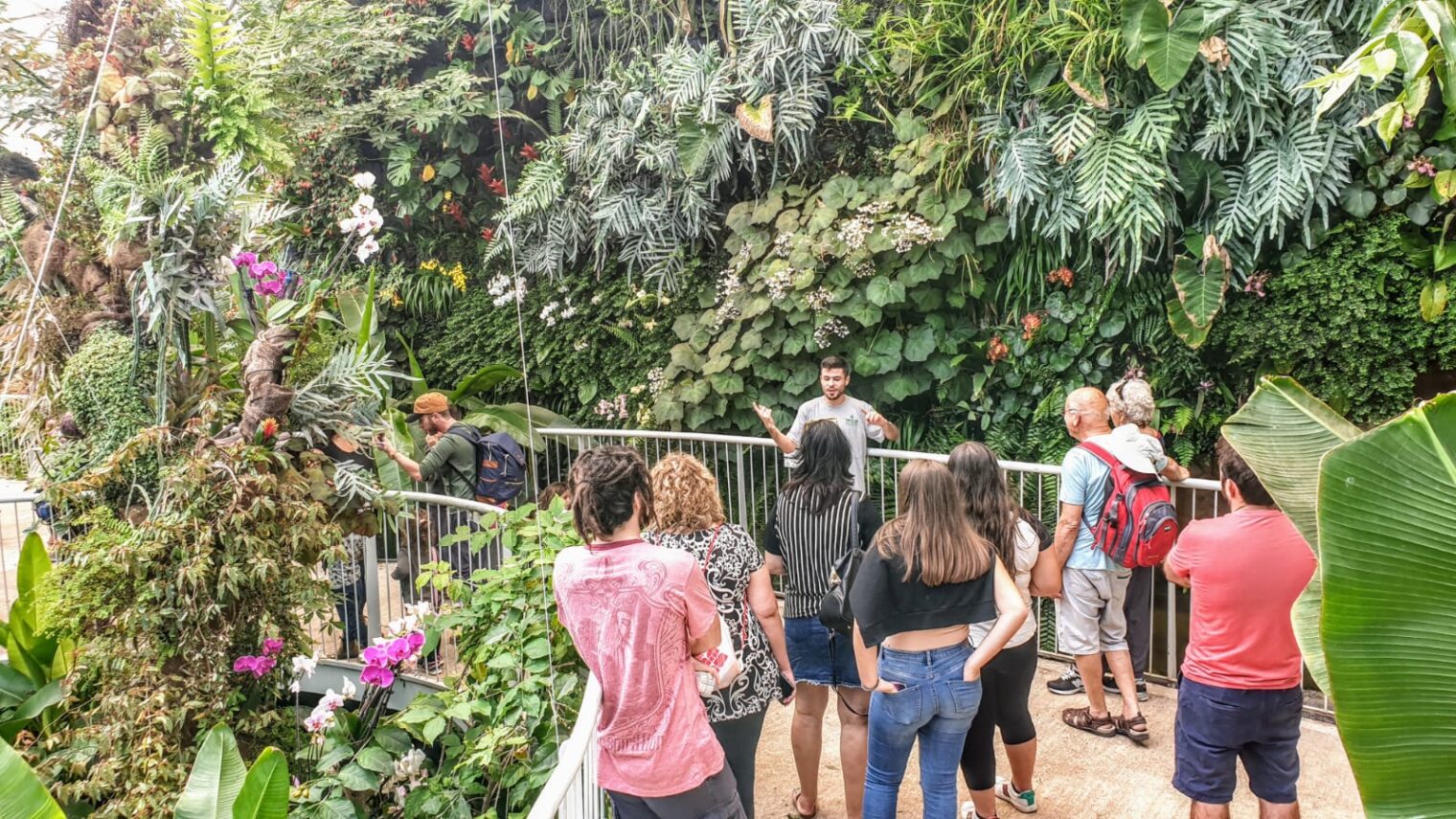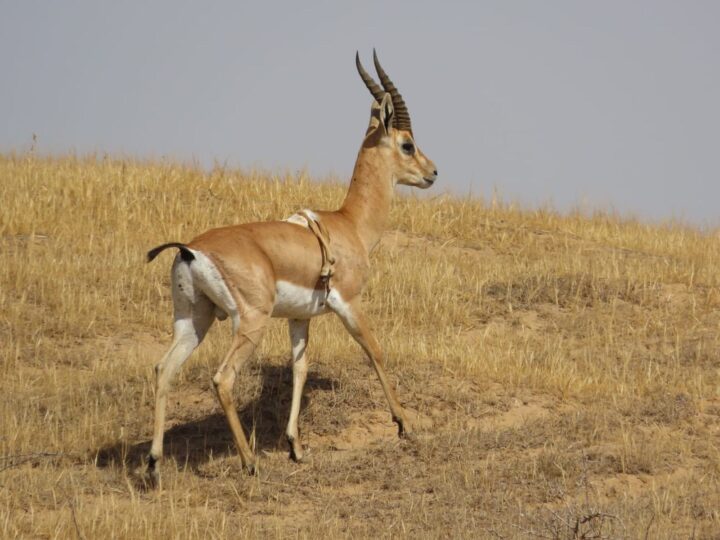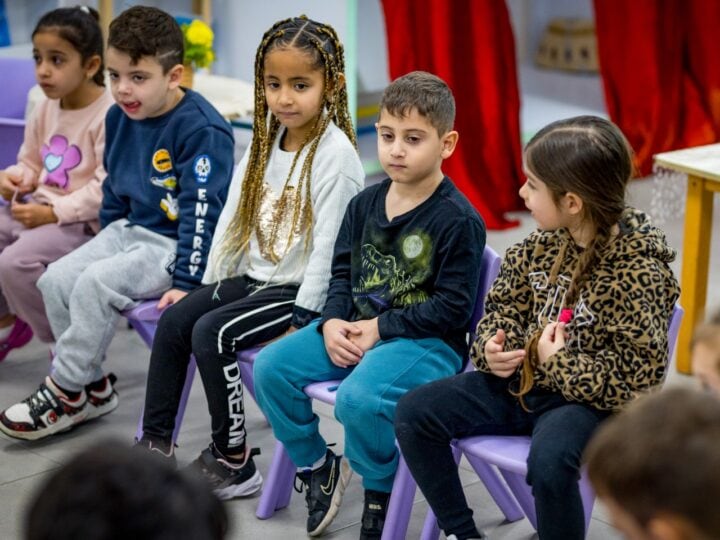Here’s one more reason to put the delightful Jerusalem Botanical Gardens on your itinerary: its Tropical Conservatory has reopened after a $2 million facelift that took a year and half to complete.
The transformed Tropical Conservatory boasts approximately 300 kinds of plants in all shapes and colors. Endangered plants, exotic banana trees, coffee plants, orchids and cacti are among them.
This isn’t a mere display of potted plants.
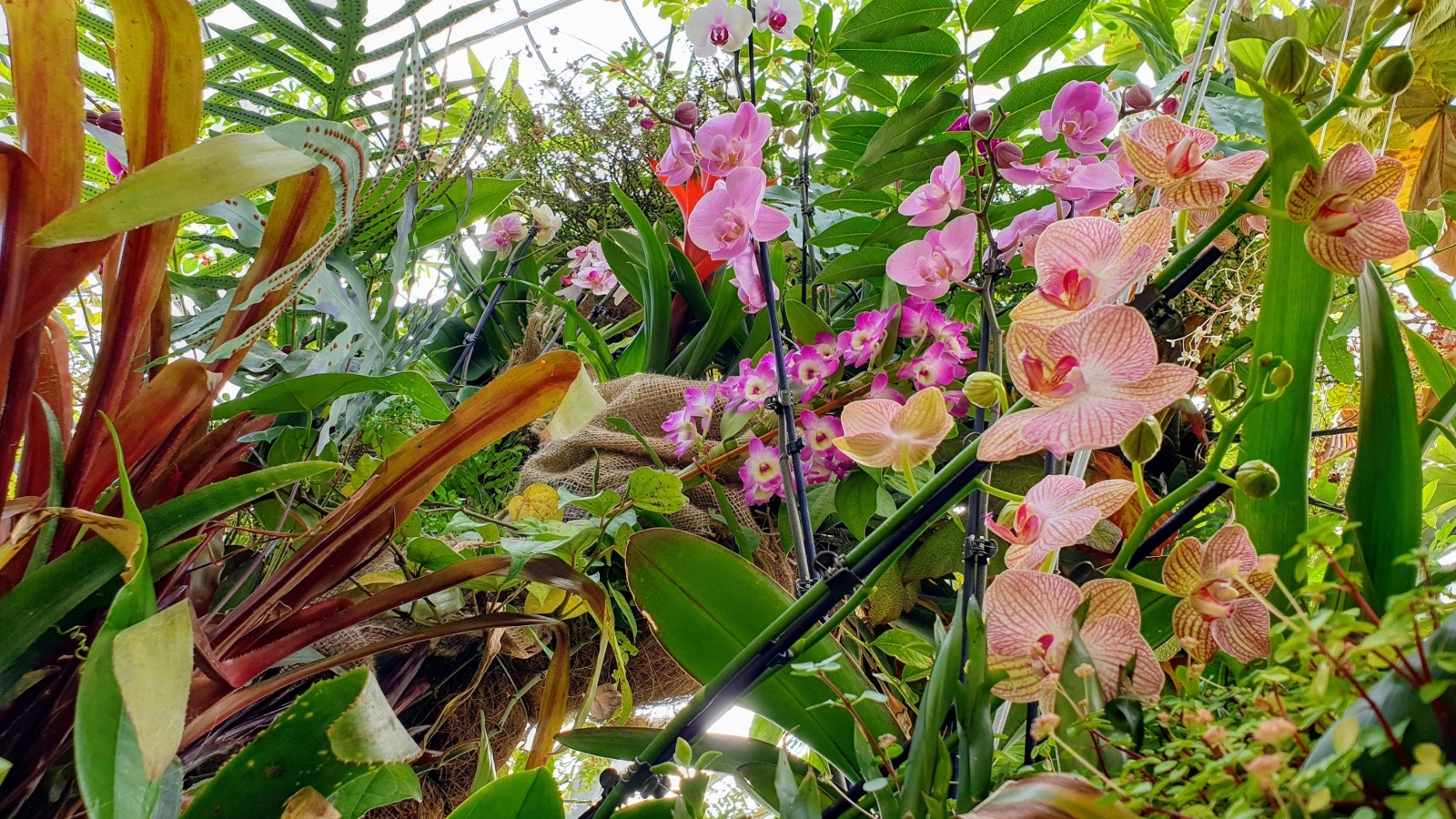
The conservatory includes features such as a stream with aquatic plants, and the remains of an ancient columbarium carved into rock, which was discovered at the site during construction.
Dating back to the Second Temple period, these pigeon niches today serve as natural beds for Stapelias, small succulent plants.
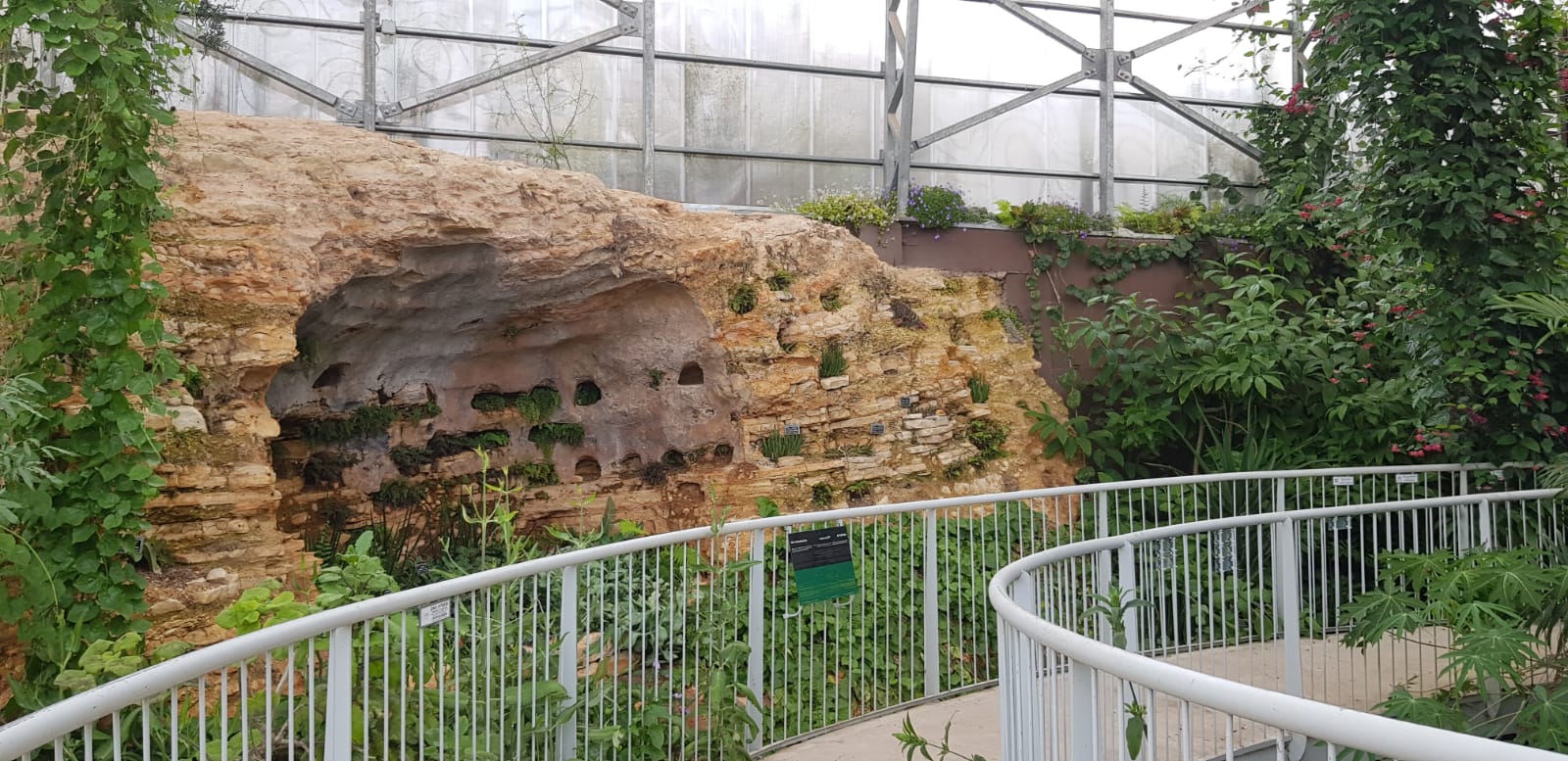
The Tropical Conservatory experience begins in a grand foyer situated below a traditional conservatory roof. Then the conservatory is split into two distinct regions: a rainforest and a desert.
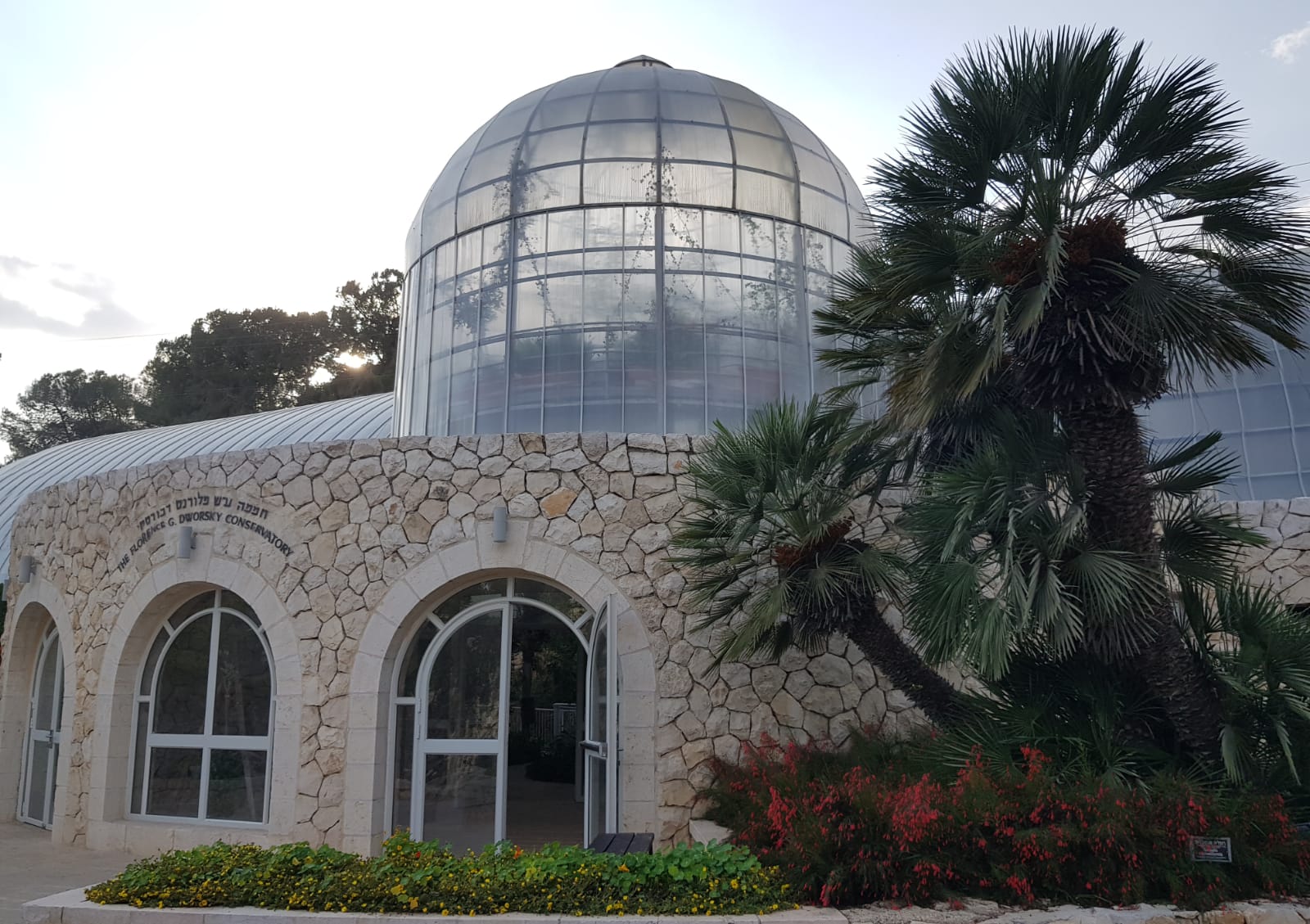
Each has rich vegetation adapted to the respective climate. The desert region, for instance, has some of the world’s most unique plants and shows how they have adapted to dry conditions.
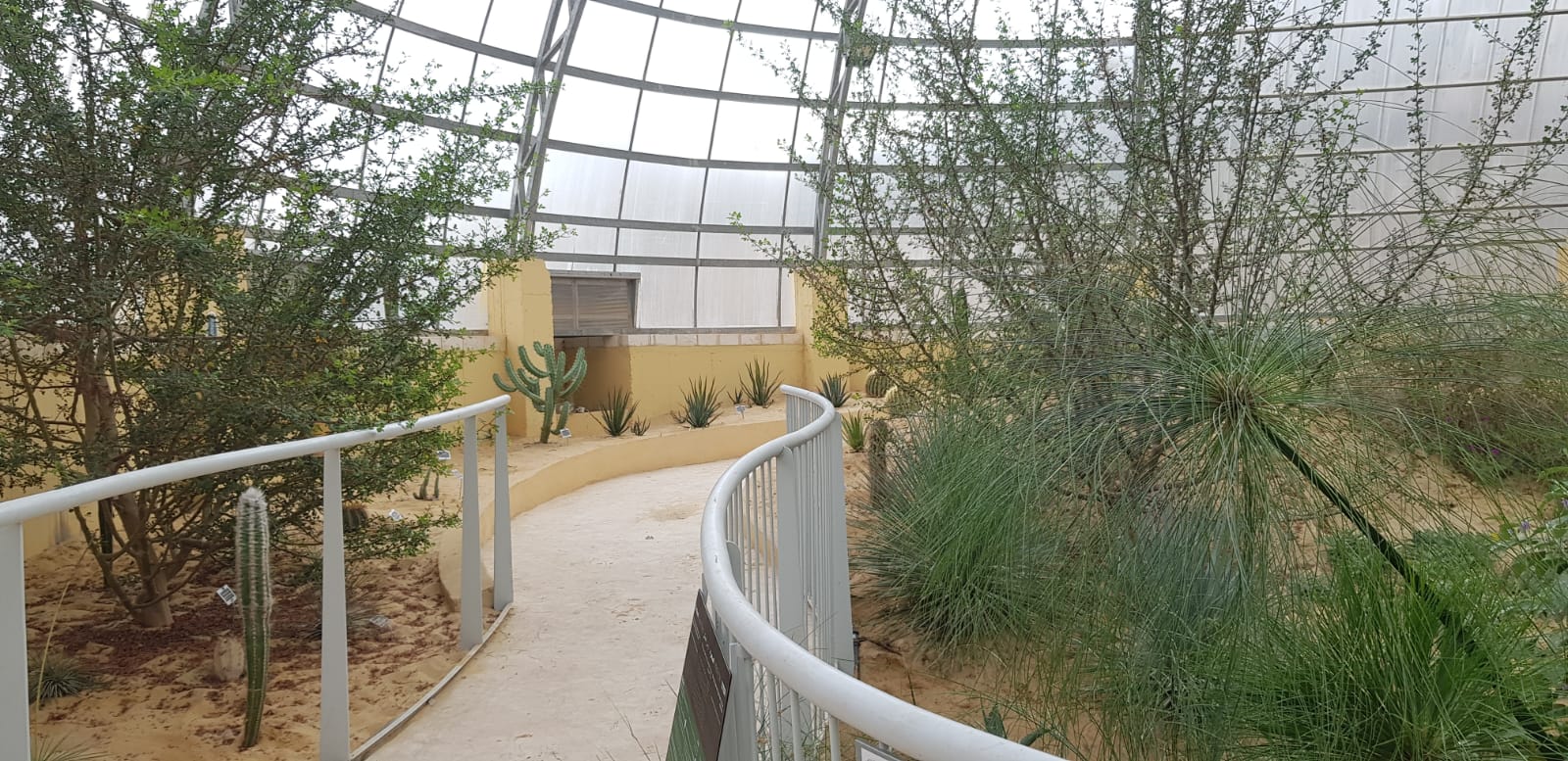
There’s the Trichodesma with teal colored flowers, a Jericho rose that releases seeds only after 10mm or more of rain, and shrubs producing fragrant fruits from which the most iconic perfumes of the world are made.
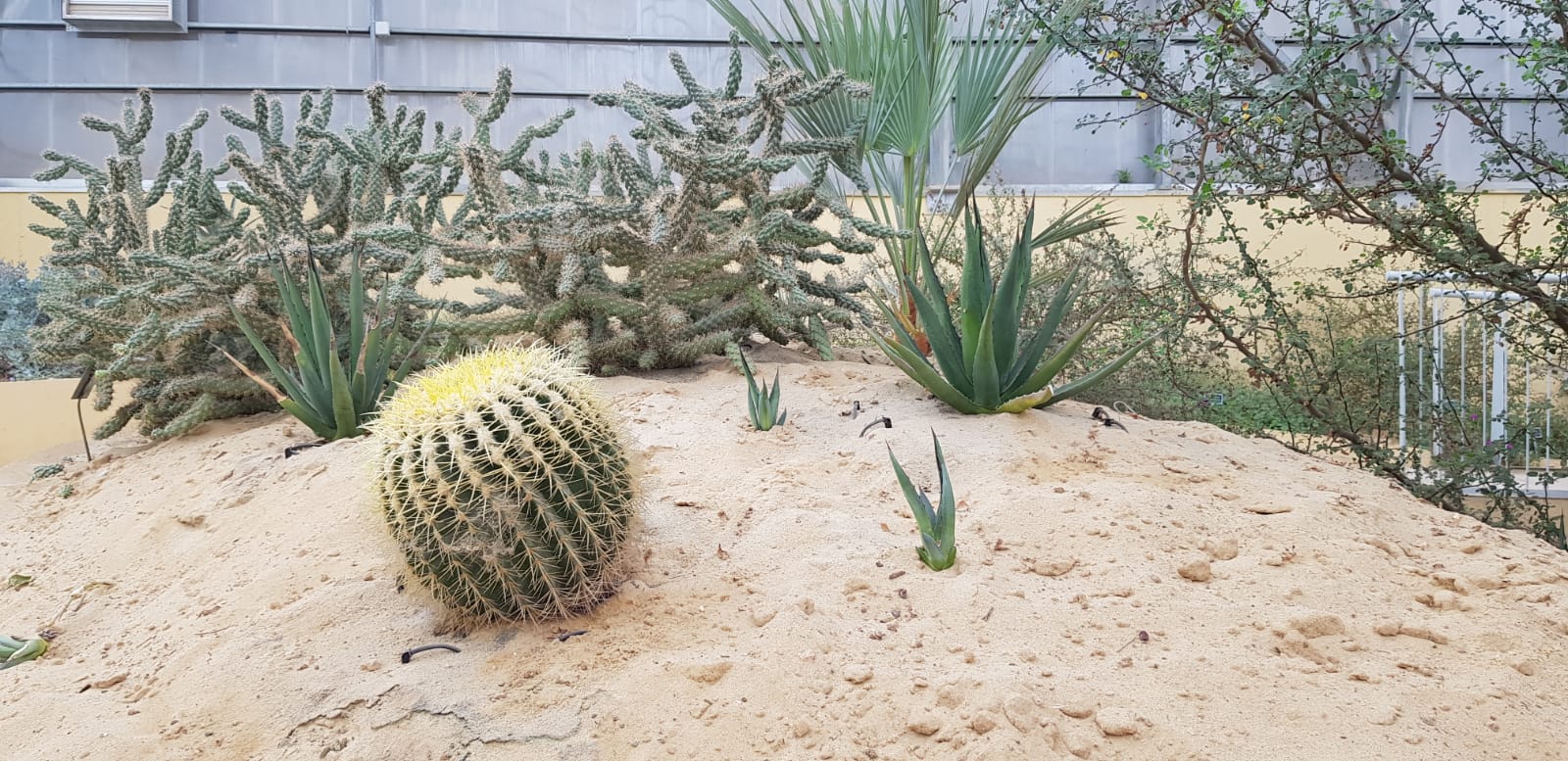
Guided tours welcome visitors to touch, smell and even taste the plants and their fruits, and to discover ecological and biological processes particular to those regions.
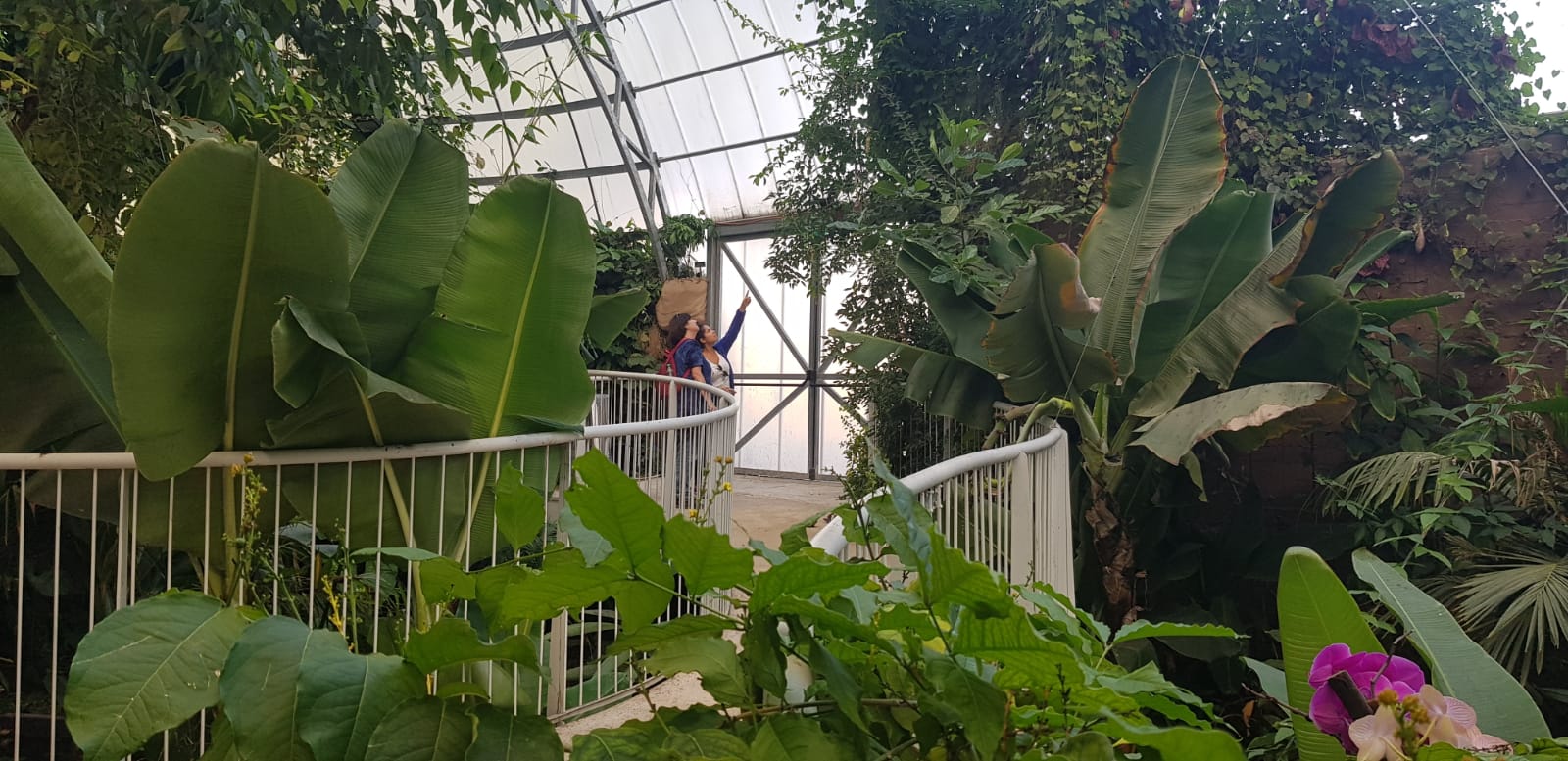
“The Jerusalem Botanical Gardens continues to innovate in the areas of botany, horticulture, agriculture and community,” said Jerusalem Botanical Gardens CEO Tom Amit. “A visitor and conference center will soon open, and a new entrance and greenhouse are planned. I invite the general public to come to Israel’s largest botanical gardens and embark on a magical journey through nature.”
The 30-acre Jerusalem Botanical Gardens serves as an education, learning and research center.
You can see a diverse collection of more than 6,000 plant species and varieties from around the world. They’re grouped geographically in six sections – Southern Africa, Europe, North America, Australia, South-East and Central Asia and the Mediterranean.
The sections simulate the landscapes of these areas and so there is always something blooming.
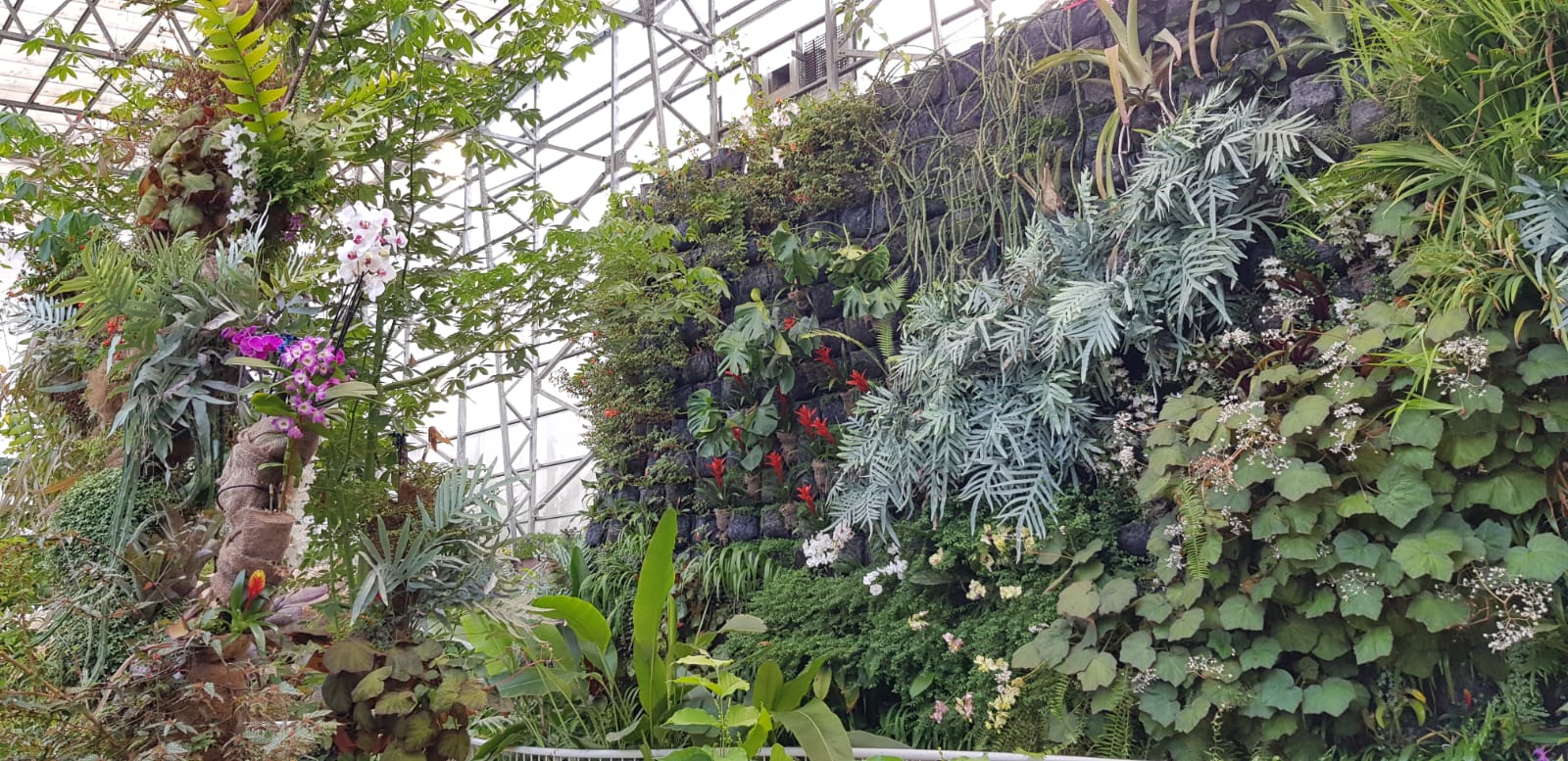
The Jerusalem Botanical Gardens is open seven days a week: Monday-Thursday from 10-3:30, including a tour on Mondays and Wednesdays between 2 and 3:30; Friday and Saturday from 11-3, including tours; and Sunday from 10-1. General admission is ₪35.
For more information, call the Jerusalem Botanical Gardens at 02-679-4012 or click here.
